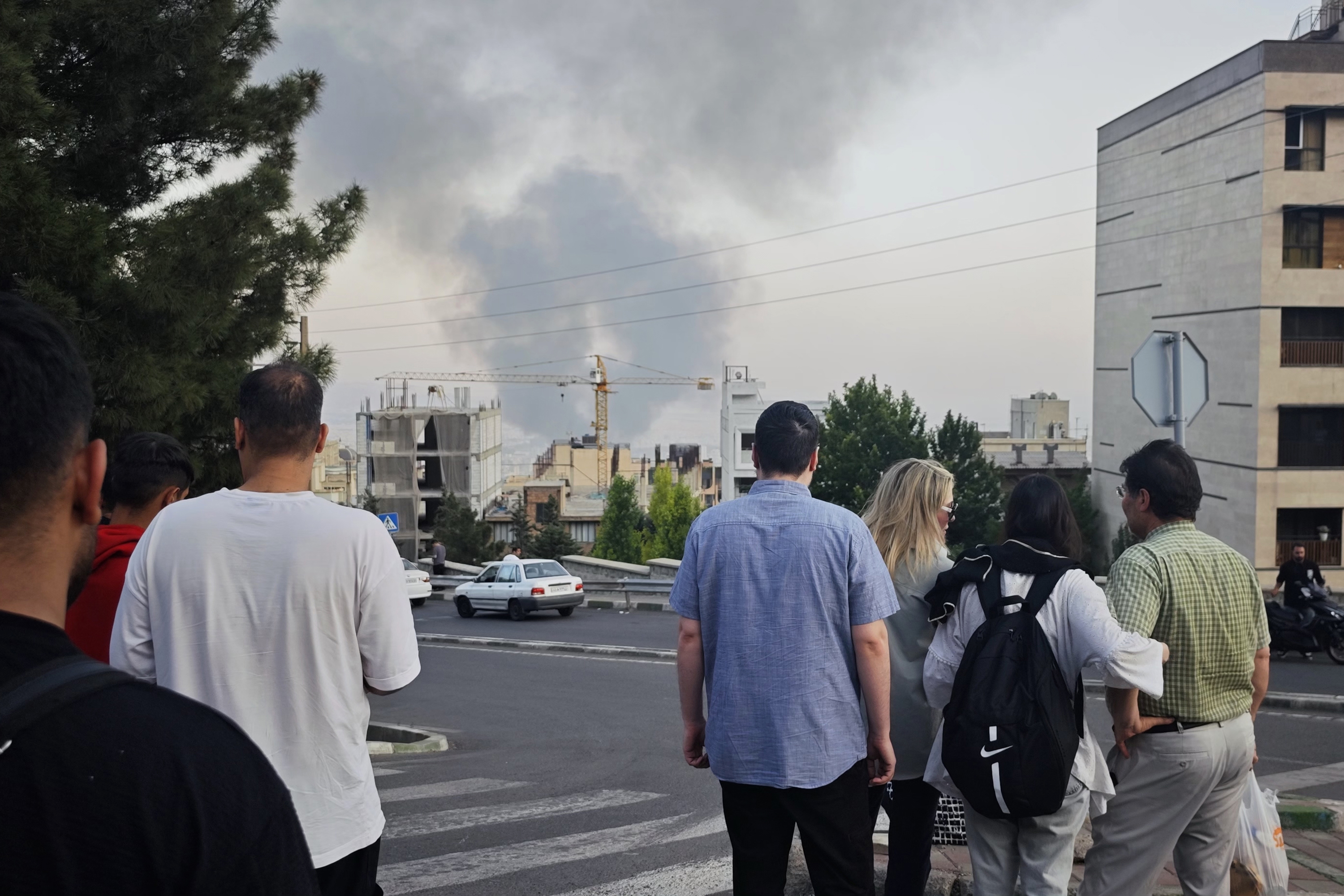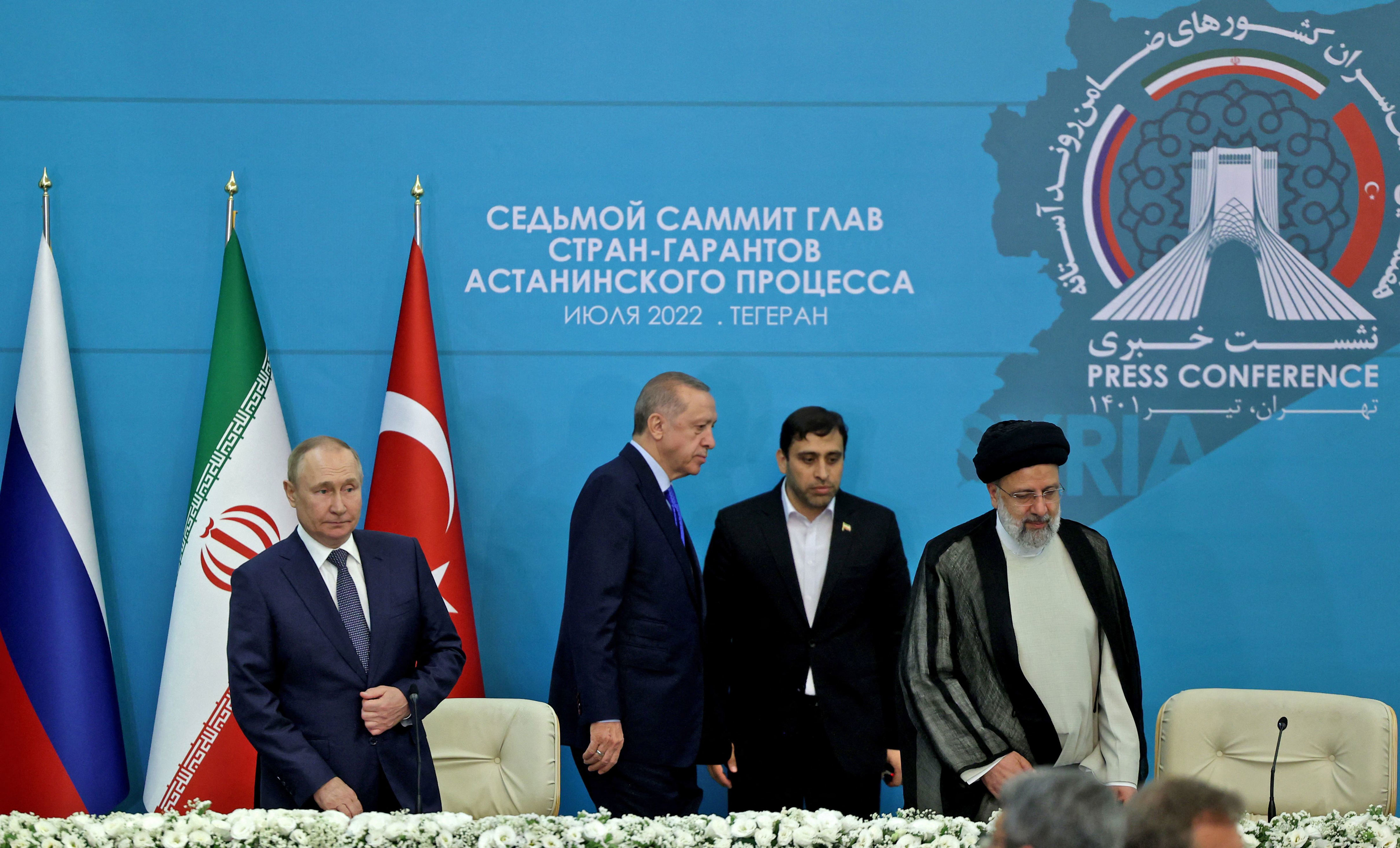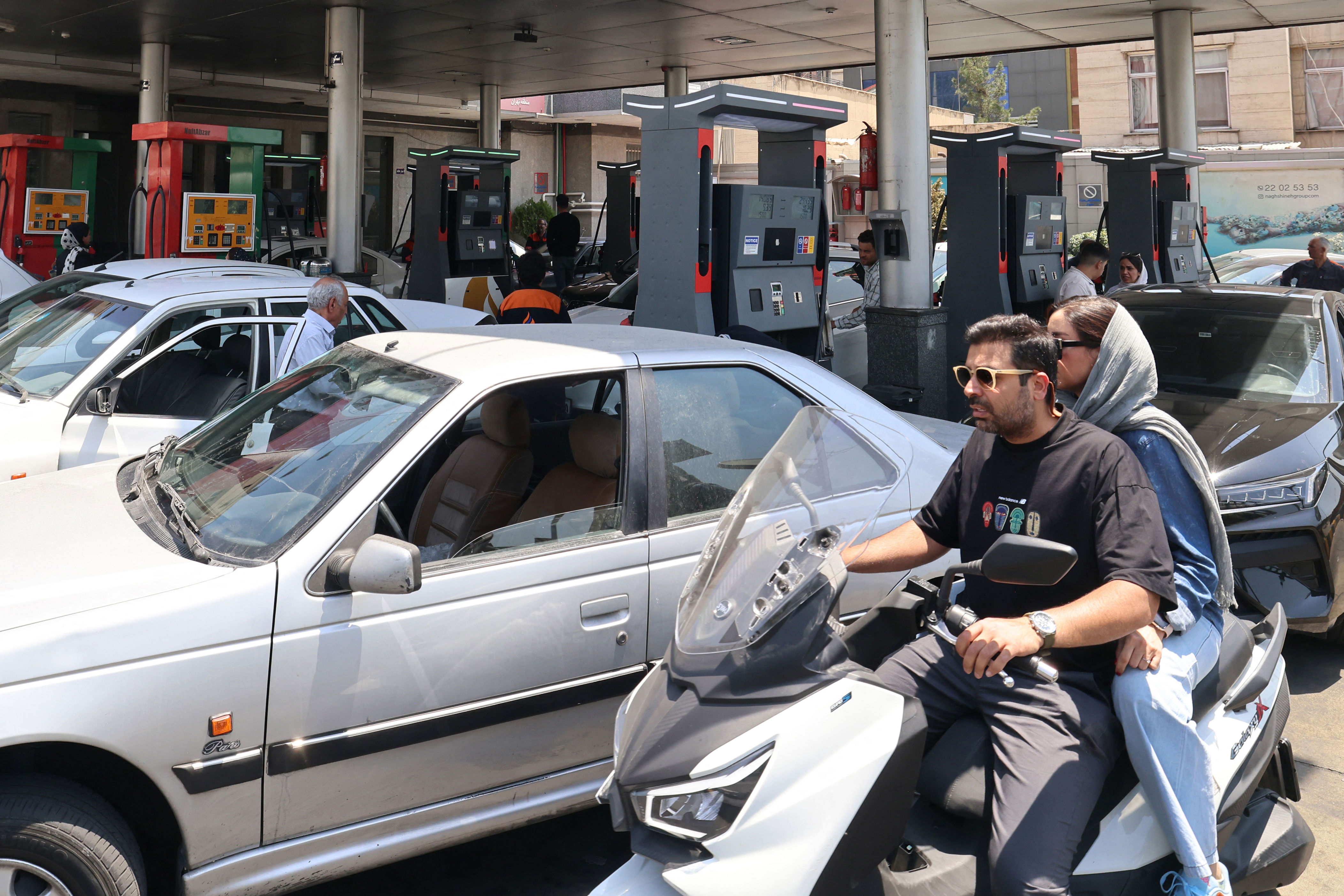Russia Worries Israel's Clash With Iran Might Cost It Another Mideast Ally

As the direct conflict between Israel and Iran stretches into its fourth day, members of the Russian establishment are coming to the realization that it could destroy the country’s closest ally in the Middle East — the second to fall in less than a year.
When Israel began bombarding Iran’s nuclear facilities early Friday and killing its commanders, some in the Moscow elite initially saw it as an opportunity for Russia.
“Only a summit between Russia and the U.S., between Putin and Trump, can keep the world from catastrophe,” said influential Moscow tycoon Konstantin Malofeyev, suggesting that Russia could use its long-standing relationship with Iran to bring it to the table for a nuclear deal in return for the United States withdrawing its support for Ukraine.
“Against the backdrop of all this, Kyiv’s demands [for assistance] look ridiculous. … It’s time for the Americans to leave Ukraine to us.”
Russian President Vladimir Putin immediately put himself forward as a mediator in phone calls with Israeli Prime Minister Benjamin Netanyahu and President Donald Trump.
Russian analysts also predicted that the new conflict would distract world attention from Russia’s military action against Ukraine, and that the resulting surge in oil prices would replenish Russia’s increasingly squeezed coffers.
But as Israel expands its attacks deeper into Iran’s cities and towns, targeting energy production and manufacturing facilities, nervousness is growing in Russia that the Israeli attacks could lead to regime change in Iran and the potential loss of one of Russia’s most important allies in its efforts to create an “anti-Western alliance.”
“The situation is developing in a dangerous direction for Russia,” said Konstantin Zatulin, head of Moscow’s influential CIS Institute, which is close to Russian security services, writing on Telegram. The institute will be holding a conference Wednesday with the Iranian Foreign Ministry on “Russian-Iranian cooperation in a changing world.”
One Russian academic close to senior Russian diplomats said he expected the Russian participants to be closely watching their Iranian counterparts during the conference for any signals on the fragility of the regime.
“It’s not clear that pressure from Israel will lead to the weakening of the regime. The external threat could lead to the opposite and unite society,” he said, speaking on the condition of anonymity to talk frankly on the subject. “Where the limits of this stability are — this is the most important question. It is difficult to judge.”
Other Russian analysts said they feared the Iranian regime was increasingly brittle.

Since the start of its full-scale military invasion of Ukraine in February 2022, Moscow has drawn ever closer to its long-standing ally, Tehran. It relied heavily on a steady supply of cheap Iranian drones and missiles to bombard Kyiv and other Ukrainian cities, at least until recently, when it launched its own drone production lines.
Moscow and Tehran signed a strategic partnership agreement in January formalizing their close ties, but stopped short of setting up a full military alliance.
“The biggest threat is that under any resolution of the crisis, there is a risk for Russia’s position in the region. If Netanyahu can pressure the Islamic republic and provoke a regime change, then it’s more likely than not that whatever the new regime will be — whether secular or religious, military or liberal or conservative — it’s not going to be as positive toward Moscow as the current one,” the academic said.
Even if the regime withstands prolonged attacks, “then the process of nuclear proliferation in the Middle East is likely to spread, which is also not in Russia’s interests,” the academic added. “It is difficult to find a situation here where Russia would win.”
After the fall of another long-standing Moscow ally in Syria, any collapse of the Iranian regime would be a much more serious blow, he added. “Iran is bigger and is a neighboring country, and there is an even more historic long-standing relationship.”
As Netanyahu makes his determination to topple the current Iranian leadership ever clearer, urging Iranians on Saturday to “stand up and let your voices be heard,” the chances for Putin to act as an effective intermediary appear to be diminishing, he said.
Kremlin spokesman Dmitry Peskov on Monday reiterated Moscow’s offer to mediate between Israel and Iran, but so far there have been no immediate takers. Trump appeared to be considering it when he spoke with Putin by telephone Saturday, but a number of European leaders have dismissed the idea.
The most immediate boon for Russia since the start of the conflict is the surge in the price of Russian Urals-blend oil, which, according to Reuters, is now back up to levels last seen in April, above the $60 price cap set for Russian oil by the Group of Seven countries as part of efforts to reduce Moscow’s ability to fund its war in Ukraine.
Falling oil prices had put an increasing strain on the Russian budget, causing oil and gas revenue to plunge by a third, to $6.55 billion in May, according to Russian Finance Ministry data.
“While the oil price is high, Russia can get billions of dollars, potentially tens of billions of dollars in additional revenue, and this is always useful,” said Sergei Markov, a Kremlin-connected political analyst. In addition, any reduction in oil supplies from Iran would make China more reliant on Russian supplies, bringing Beijing potentially even closer to Moscow and making it less likely to bow to the threat of sanctions.

A further immediate benefit for Moscow would be the need for the United States to divert missile defense systems to its bases in the Middle East and to its allies there, including Saudi Arabia, the United Arab Emirates and Qatar. “Ukraine can forget about getting more air defense systems,” Markov said.
“But strategically, if there is regime change, then the anti-Western coalition will be smaller,” he said.
Some Russian politicians have been warning that the outbreak of hostilities between Israel and Iran could push the world to the brink of World War III. “They are trying to present peaceful nuclear development as a nuclear threat, in this way setting alight the fire of World War III,” warned the head of the Russian parliament’s foreign affairs committee, Leonid Slutsky, on Monday. “Parliaments of the whole world should speak out against an escalation of the conflict, which could spread far beyond the borders of the Middle East.”
If Iran expands its response beyond strikes on Israeli targets, “this would be the worst scenario in the current difficult situation,” said Konstantin Kosachev, deputy speaker of the Federation Council, Russia’s upper chamber of parliament.
Chances are also growing that this could turn into a global conflict, Markov said. Russia could begin providing further assistance to Iran in an effort to prop up its Middle Eastern ally, including by supplying more air defense systems and more military assistance, as well as food and other aid to ease internal tensions.
“When everywhere the fires of conflict are burning, then it’s clear these fires could begin to merge and a huge worldwide conflagration can begin,” Markov said. “The West has created the conditions for any war to be good for Russia.”
Post a Comment for "Russia Worries Israel's Clash With Iran Might Cost It Another Mideast Ally"
Post a Comment